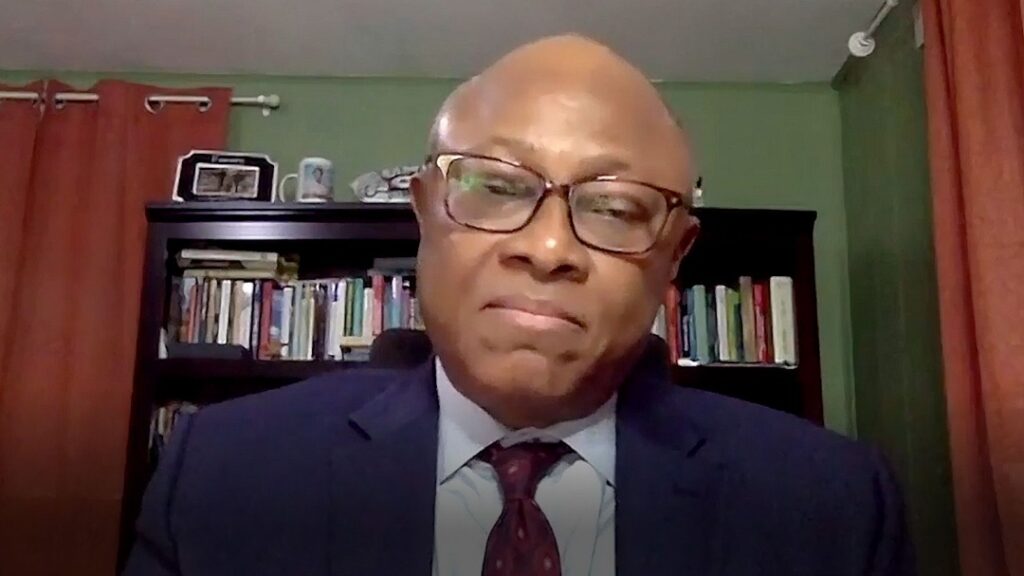News
Nigerians In US Live In Fear, Avoid Quarrels Over Trump’s Deportation Crackdown—US-Based Professor
Nimi Wariboko, a Boston University Professor of social ethics, recently expressed his concern regarding the anxiety gripping Nigerians in the United States resulting from a general crackdown on illegal immigration under President Donald Trump.

Wariboko spoke during a virtual appearance on the Friday episode of Inside Sources with Laolu Akande, a sociopolitical program on Channels Television.
“Here, a good number of Nigerians don’t have papers. Wariboko described the tense environment inside the Nigerian community in the United States barely three weeks after Trump started his second term on January 20, 2025.
“If you are a pastor or a leader in those communities, you are worried for those people; you have concerns for them. Are they scheduled to be deported? Some of them are hiding—there is that real concern that they could be raided.
If you quarrel with your neighbours, they can call the immigration enforcement agency. One senses that there is obvious anxiety. They are afraid, they are enraged, and they don’t know what is going to happen.”
Trump, who has pledged wholesale deportation of undocumented immigrants he labels as “criminal aliens,” has already overseen raids at homes, schools, offices, and shopping centres.
Undocumented immigrants have been rounded up and deported to nations like India and Guatemala, among others. While some have commended his measures, others have questioned the tough policies.
Wariboko pointed out that many undocumented Nigerian immigrants are upset at their compatriots back home for a perceived lack of empathy.
“They (undocumented Nigerian immigrants) are saying at the end of the day, if this great replacement holds, they are going to be sent back home. Do you have employment to absorb them?” he asked.
He also warned that even Nigerians in the U.S. with legal residency or citizenship could encounter issues with Trump’s proposed revocation of birthright citizenship legislation.
Wariboko stated that the Nigerian government should take a more proactive role in defending its nationals in the United States, as mass deportations might have huge economic ramifications for Nigeria.
“They are saying even if you don’t like us, people in the U.S. send billions of dollars home every year to sustain the Nigerian economy, to sustain their families. Even for economic interest, Nigeria should worry about that since money flows from here to sustain different households,” Wariboko added.
“For many families, if they didn’t have people abroad, in Europe, Asia, the United States, or Canada, their economic well-being would be below what they have in the country.
So, if people know that policies are about preserving your economic interest, they would defend their fellow citizens because it is in the national interest of Nigeria.”
The professor highlighted the World Bank’s 2023 report, which stated that remittances from overseas Nigerians topped $20 billion, underlining the diaspora’s crucial role in bolstering Nigeria’s economy.
Trump’s assault on unauthorised immigrants is reminiscent of his first time in office. In 2020, Nigeria was added to a list of nations with restricted access to the United States due to non-compliance with identity management and information-sharing criteria.
Official sources estimate that roughly 376,000 Nigerian immigrants dwell in the U.S. as of 2015, making Nigeria the largest source of African immigration to the country.
The U.S. remains a major destination for Nigerian youngsters and the middle class seeking better chances, with the diaspora contributing significantly to Nigeria’s economy annually.
JOIN THE CONVERSATION→ Telegram | X/Twitter | Facebook | WhatsApp|WhatsApp Channel|Mobile App|Instagram











